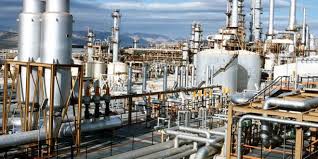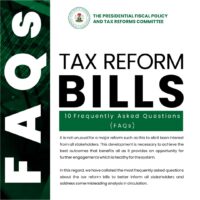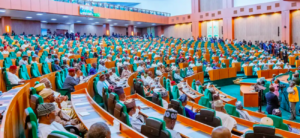The inability of electricity distribution companies to absorb the output of power generation firms is threatening the operation of the Gencos, investigation has shown.
Worse hit among the power generation companies is the Niger Delta Power Holding Company, which has a total of 10 power stations across the country.
The NDPHC, which belongs to the three tiers of the government, has a generation capacity of about 5,000 Megawatts from 10 National Integrated Power Project stations.
Given the inability and refusal of distribution companies to lap up the full capacity of power available from the generation firms, the National Control Centre in Osogbo is responsible for allocating to electricity generation firms the quantity of power each should produce.
Investigation showed that on monthly basis, the NDPHC had been producing about 400MW or 10 per cent of what it could produce from eight of its 10 operational power plants.
Because the power companies are paid based on what they are able to generate on monthly basis, the firms are anxious to produce as much as they can but it is the NCC Osogbo that determines who should produce what.
Our correspondent learnt that while private operators were allocated as much as 85 per cent of their available capacities, the NDPHC plants were being allowed to produce just about 10 per cent of their available capacities as the company was said to be used merely for balancing load.
Piqued by this development, authorities at the NDPHC had written some letters to the NCC, seeking to redress the situation.
In one of the letters sighted by our correspondent in Abuja on Thursday, the Managing Director, NDPHC, Mr. Chiedu Ugbo, stated that the company would not be able to meet its obligations if it continued to produce much below capacity.
Some of the obligations include payment for gas, maintaining the human resources and maintenance of plants. It was learnt that gas plants operated by the NDPHC would accrue huge maintenance costs if they were consistently subjected to low capacity utilisation.
In the letter, Ugbo stated, “We wish to inform you that the Federal Government has signed the World Bank Partial Risk Guarantee to securitise the Gas Sales Agreement with Accugas Limited for the supply to our subsidiary Calabar Generation Company Limited.
“Under the GSA, the power station is obligated to off-take a minimum quantity of gas equivalent to 80 per cent of full load on a take-or-pay basis. Our serious concern is that the load dispatched by the system operator from the power plant has remained consistently below 25 per cent of its installed generation capacity.
“The implication of this is that the power plant is constrained to consume only a fraction of its obligatory take-or-pay gas quantity and is consequently unable to earn enough revenue to cover its gas bill obligation under the GSA.
“This situation is certainly unsustainable and may soon result in a huge embarrassment to the government if the PRG is called off.”
When the view of the NCC was sought on the criteria being used to allocate load to the generating firms, the General Manager, Mr. Kingsley Osuoha, referred our correspondent to the Executive Director, Technical, NDPHC, Mr. Oyedele Ife.
A Presidency source, who spoke to our correspondent on the condition of anonymity, feared that the allocation of low load to the NDPHC might be a subterranean move to sell the NIPP plants at giveaway prices.





